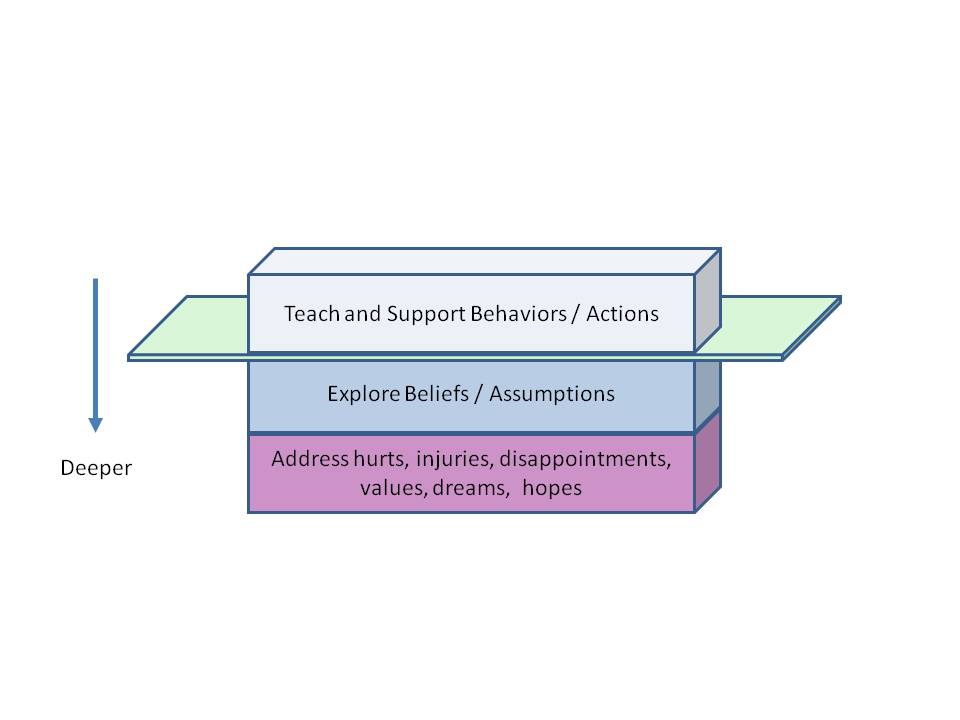Lasting change. When we or our organization pays a coach, the assumption is often that the results that are generated will last, whether or not that is made explicit. For example, we don't want to see that, 6 or 12 months later, all the work put into becoming a better delegator has become meaningless.
There are many paths toward successful coaching results, but not all paths are equivalent. If a problem has been with someone for years, and has possibly resisted multiple attempts to make a change, what are the chances that working at a more shallow level, without exploring the obstacles to success, will result in lasting change? There are problems that are more easily addressed, perhaps through training, practice, and/or having an accountability partner. However, many of our thorniest problems require deeper exploration to gain any sort of traction and lasting results.
Why the 3 bears? Because similar to the porridge that was too hot, too cold, and just right, coaching can be too shallow, too deep, or just right. If too shallow, the results may not last (if there are results. If too deep, the coaching won't be cost effective, and may go beyond the bounds of the coaching contract. And, if just right, the coaching will be results-driven, while keeping in mind the potential obstacles to lasting results and the need to deal with these obstacles.
Please take a look at this diagram and let me know what you think. The top level reflects shallower, more behavioral coaching. I'm suggesting that the ideal coach will go as deep as necessary to get results, but no deeper.



